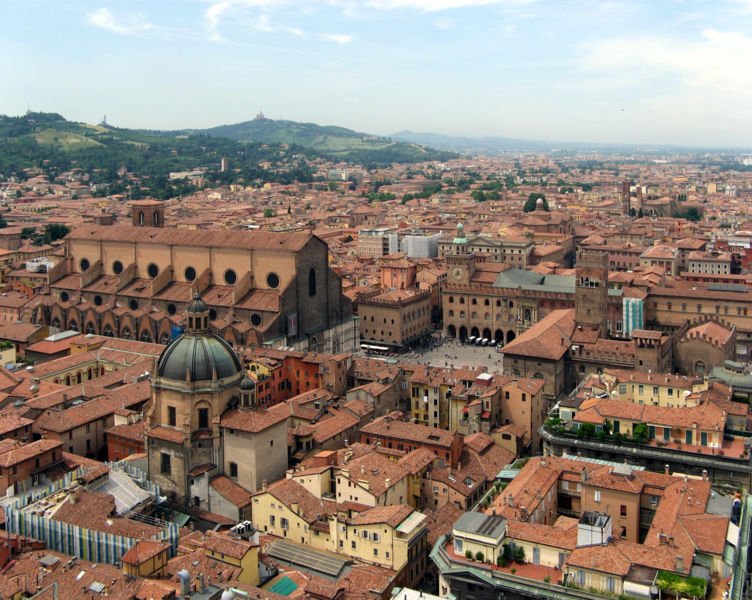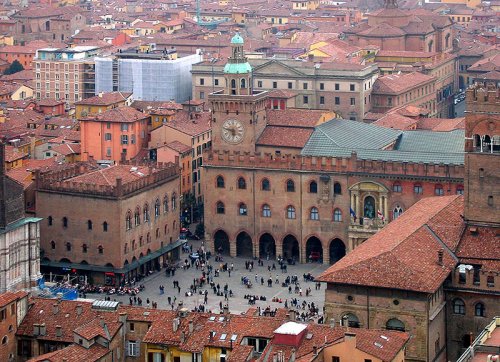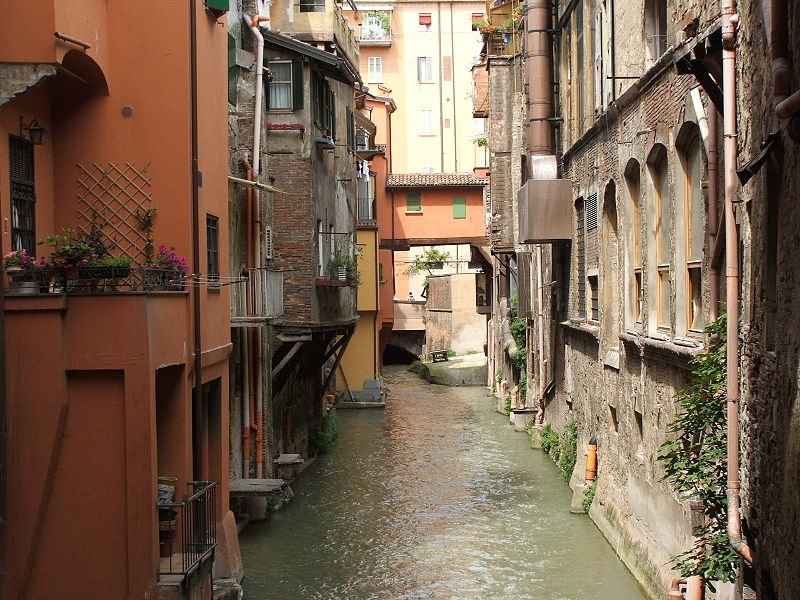 Bologna, Italy
Bologna, ItalySource: https://commons.wikimedia.org/wiki/File:Bologna-SanPetronioPiazzaMaggiore1.jpg
Author: Steffen Brinkmann

Bologna is a city in Northern Italy. It is located in the Po Valley, and is the capital of Emilia-Romagna administrative region. Bologna is one of the most developed cities in Italy, and home to the oldest university in the Western world, the University of Bologna which was established in AD 1088. Bologna is rich in culture and history and has a lively cosmopolitan appearance, due in part to it being a university town.
The area around Bologna has been settled as early as the 4th century BC. The foundation of a settlement there dates to the Roman destroying earlier villages of the Carthaginians. The population were mostly Celtic, but assimilated to the Roman society. The town, then known as the colonia of Bononia, became a municipal in 88 BC. During the Roman period, it was a prosperous city, reaching the size of second biggest city in Italy at its peak, before going into a long decline.
A new lease of life came to Bologna in the fifth century with the construction of the Church of St Stefano by St. Petronius. Germanic conquerers in the form of the Lombard king Liutprand captured the city in AD 728.
 Piazza Maggiore, Palermo
Piazza Maggiore, PalermoSource: https://commons.wikimedia.org/wiki/File:Bologna-vista02.jpg
Author: Gaspa

In the 13th century Bologna spearheaded a movement to free slaves using public funds, under a law called Legge del Paradiso. It was then a wealthy city with a good number of public buildings, churches and towers built by leading families.
A plague in the 16th century shaved the population from 72,000 to 59,000. The city was under Papal control over various periods of its history. It became part of the united Italy on 12 June, 1859.
Today Bologna is an important commercial, industrial and communications hub in northern Italy.
Travel to Bologna
By PlaneThe Bologna International Airport (BLQ), also known as the Guglielmo Marconi Airport, is just a few minutes from downtown Bologna. Budget travellers can take the public bus No. 81 and 91 to the Bologna Central Train Station. The fare is just €1. You can also take the taxi or the airport shuttle called Aerobus to reach downtown. The Aerobus costs €5 while the taxi €15.
By Train
Bologna is well suited geographically as the transportation hub of Italy. There are trains from major European cities as well as high-speed trains from Milan - the journey takes just 65 minutes. Bologna is also about 40 minutes from Florence, 2 hours 20 minutes from Rome, and about 2 hours from Venice.
Travel within Bologna
The heart of downtown is at the Due Torri - usually at the centre of a Bologna map. It is possible to go on foot to explore the city. Otherwise take the ATC bus.Photos of Bologna
 Il canale delle Moline, Bologna
Il canale delle Moline, BolognaSource: https://commons.wikimedia.org/wiki/File:DSCF7130.JPG
Author: Twice25

Places of Interest in Bologna
- Piazza Maggiore
Public square in the centre of Bologna. - San Petronio
Largest church in Bologna, on the south side of Piazza Maggiore. - Palazzo Archiginnasio
Former seat of Europe's oldest university. - Piazza del Nettuno
Another public square in downtown Bologna. - Fontana di Nettuno
16th century fountain at Fontana di Nettuno. - Palazzo Comunale
Medieval town hall of Bologna. - Via Rizzoli
Charming street in Bologna lined with cafés. - Due Torri
The leaning towers of Bologna. - Piazza di Porta Ravegnana
Public square at Due Tori. - Torre degli Asinelli
Another leaning tower in Bologna. - Basilica di San Bartolomeo
Roman Catholic basilica in Bologna. - Santa Maria dei Servi
Gothic church in Bologna. - Abbazia di Santo Stefano
A complex of church buildings located just off Via Santo Stefano. - San Sepolcro
Church building within the Abbazia di Santo Stefano where San Petronio, the patron saint of Bologna, was buried. - Santi Vitale e Agricola
Oldest of the churches in Abbazia di Santo Stefano. - Cortile di Pilato
A courtyard known as "Pilate's courtyard", at San Sepolcro. - Church of Santa Trinita
Another church in the Abbazia di Santo Stefano complex. - University of Bologna
Oldest university in Italy. - Palazzo Poggi
Present seat of the University of Bologna. - Pinacoteca Nazionale
National Art Gallery of Bologna. - Piazza Malpighi
Another public square in Bologna. - San Francesco
Church at Piazza Malpighi built in the 13th century. - Palazzo Bevilacqua
15th century building in the Tuscan style. - San Domenico
13th century church remodelled in the Baroque style.
 Latest updates on Penang Travel Tips
Latest updates on Penang Travel Tips

Copyright © 2003-2025 Timothy Tye. All Rights Reserved.

 Go Back
Go Back